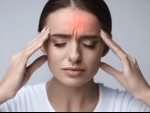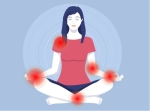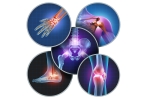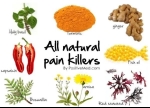Home »
Blog » Health and Wellness
| Stem Cell, PRP, Acupuncture in Queens & Long Island, New York
Health And Wellness | Stem Cell, PRP, Acupuncture in Queens & Long Island, New York
You might have heard that exercise can help with chronic pain, but this can sound counterproductive as some patients are left with a flare-up. Let’s dive into why and how exercise helps! When you live with chronic pain, it’s natural to be cautious about exercise as you don’t want to worsen your pain. But the truth is, avoiding exercise is doing the opposite of protecting yourself. Being active and exercising really does help your chronic pain, with studies and industry bodies labeling it as “the miracle cures we’ve all been waiting for.”
Read more
The Impact of Stress on Orthopedic Pain - While everyone experiences heightened levels of stress every now and then, too much stress can exacerbate chronic pain symptoms. The experts at Medicine centers are here to shed some light on the connection between distressing emotions and chronic pain.
Read more
Exercise therapy is a form of physical therapy designed to achieve specific therapeutic goals, depending on the patient. This treatment aims to work toward the reduction of pain, as well as restoration and recovery of musculoskeletal function. If you suffer from chronic pain due to an injury or illness, exercise therapy can help you eliminate pain while simultaneously reestablishing your natural flexibility.
Read more
You might have heard the term mindfulness used more and more, and wondered if it’s a fad or if it can help with chronic pain. Mindfulness techniques have gained more attention over the last decade, particularly in treating chronic pain. This article explains that “mind and body practices, such as yoga and meditation, have raised interest in different scientific fields”
Read more
When you desperately need pain relief and you don’t want surgery, interventional medicine specialists can help. Interventional medicine is a field that specializes in relieving your pain by directly treating its source: the nerves sending the pain signals. Interventional procedures are primarily considered after conventional medical treatments fail to provide pain relief and before you resort to surgical intervention. These three nonsurgical treatments are only a few of the many pain-relieving options.
Read more
Pain Management Alternatives - Millions of Americans suffer from chronic pain every day. Sports injuries, chronic neck, joint, or headache pain, and even recovering from surgery are all reasons why some people deal with pain. Pain medication prescriptions are written daily by doctors, but what if there was a way to manage pain without the worry of addiction or possible side effects? Today there are several alternative options to get away from powerful pain medications or opioid-based painkillers.
Read more
When most people think about effective treatment for arthritis, Parkinson’s, or even cancer, they think of surgery and prescription medications. But what if physical therapy is the answer? In the last few years, physical therapy has become vital to the treatment and rehabilitation of anyone who is either ill or injured. And especially for older adults and seniors, physical therapy works both as a tool to recover from an injury and prevent several physical ailments.
Read more
Natural Pain Relief - If you have a toothache, backache, or any other type of pain, your first impulse may be to reach for pain medication. Many people rely on medications, but they can come with a risk of side effects, drug interactions, and sometimes misuse. While certain circumstances may require a prescription or over-the-counter (OTC) pain medication, it may also be possible to find some of the relief you need from a variety of natural pain relievers. Many herbs and spices have a long history of being used to relieve inflammation and pain.
Read more
Fear of chronic pain is a natural reaction, but this emotion actually contributes to the pain cycle! Let’s figure out how to break the pain-fear cycle! Fatigue and chronic pain tend to go hand in hand; often the fatigue can be harder to live with than the pain! Fatigue is not just feeling a bit tired, it’s feeling completely and entirely exhausted through every fiber of your being. This study describes fatigue aptly, Fatigue has been defined as an overwhelming sense of tiredness, lack of energy, and feeling of exhaustion.
Read more
Stress causes pain, and pain causes stress: this cycle is tough to break but it is possible to do so. This blog explains how. Stress and chronic pain are far more intertwined than you might think; one can cause the other and you can become stuck in this cycle which is increasingly hard to get out of, but it is possible to break free!
Read more
Love this Post? Spread the World
























